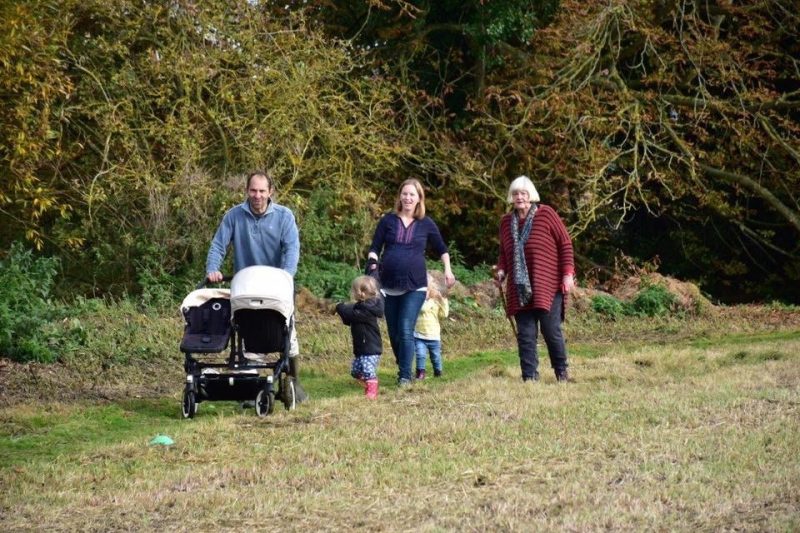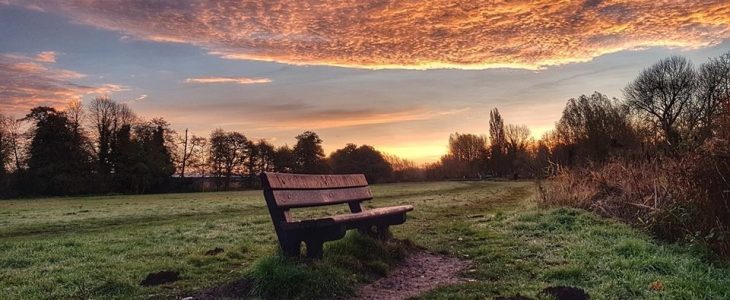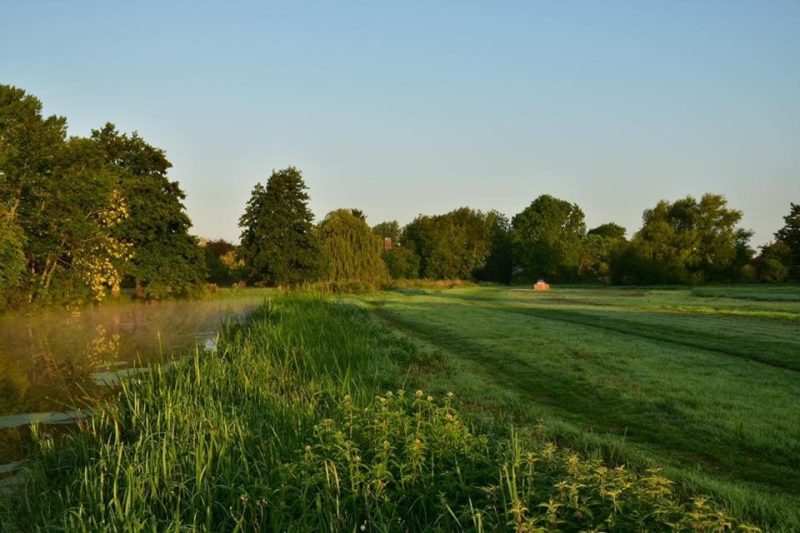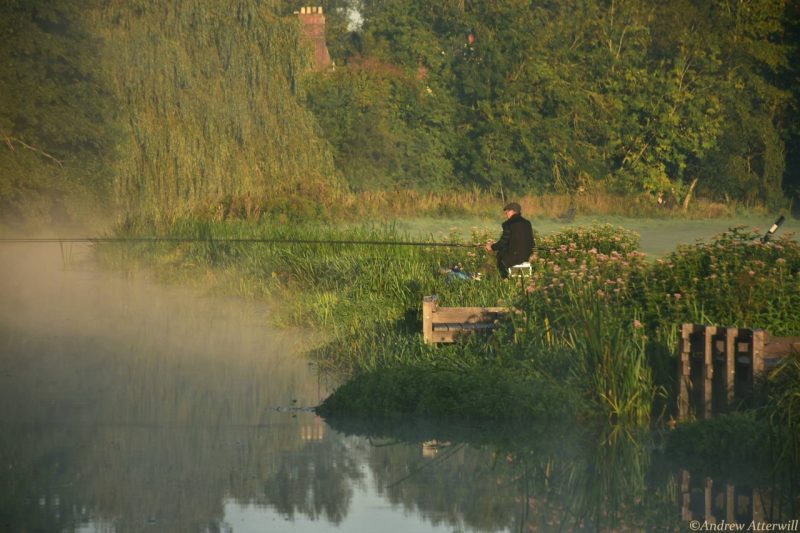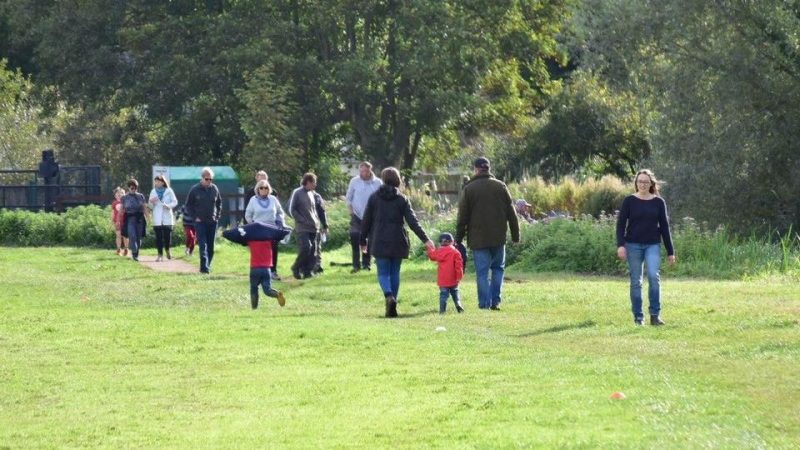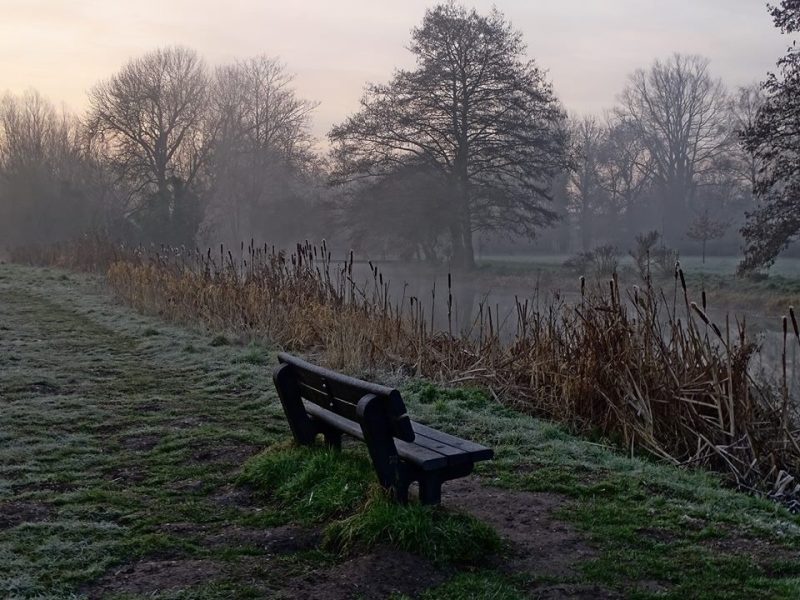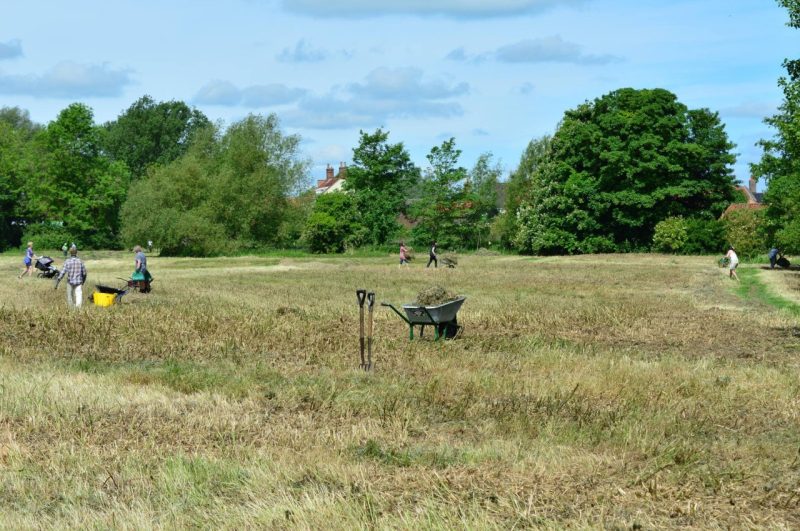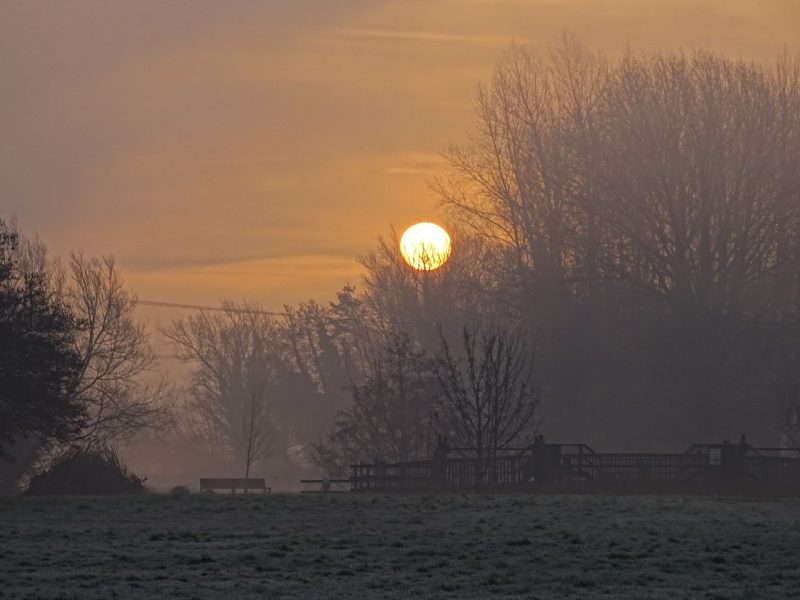Nature… up close
Katie Utting tells Village People why she works as a volunteer for the Falcon Meadow Community Trust, at Bungay, and describes the challenges ahead
Clicking through the photographs of the Falcon Meadow website it’s clear why this central, scenic riverside spot is so popular — much loved by residents and visitors alike. I feel so lucky that my children have this tranquil open space to splash in the water and explore nature up close.
And I am not alone; so many people take pleasure from Falcon Meadow — canoeists, anglers, dogwalkers and groups of teens. Phenomenally, when the meadow went up for sale, local residents led by Tim and Sue Child secured £50,000 in funding to purchase the site in just eight weeks, ensuring it remained accessible to all.
Always with a keen eye to what is growing on the meadow throughout the seasons, and a supporter of fundraising events and working parties, I became more formally involved as a trustee for Falcon Meadow in April 2017. At first, I offered to organise the installation of a barn owl box, and subsequently took an increasing interest in how the meadow was being managed for wildlife. It was exciting to read the site survey and management plan produced by Sam Brown of Norfolk Wildlife Trust.
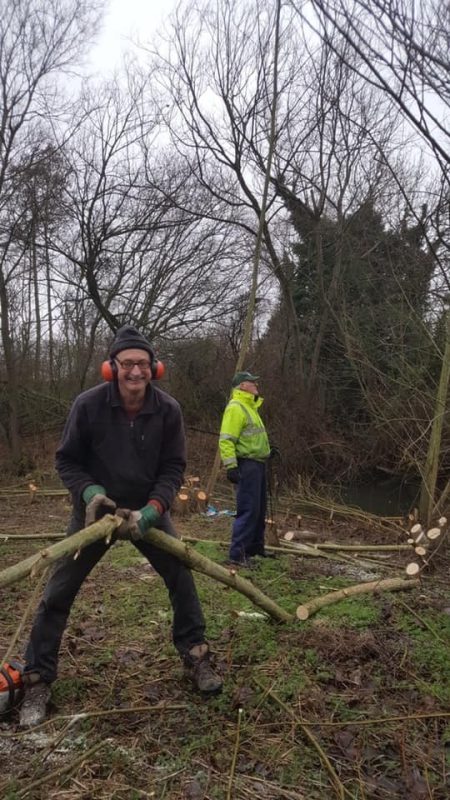
Instigating the management plan hasn’t been easy. The aim is to reduce the meadow’s fertility through mowing and removal of the cuttings so they don’t rot down. Reduced fertility will inhibit fast-growing, high-nutrient-dependant plants, such as nettles, from out-competing a more varied and ecologically beneficial arrangement of plants.
Trying to find someone locally with a small baler able to help was very difficult. But local farmers David Utting and Johnny Crickmore have found a solution for us and the bales have been removed from the site. The hay cut itself helps to prevent excessive nutrient accumulation in the system. The management plan recommends grazing cattle on the meadow, so if anyone reading this can offer us a couple of hardy cattle over autumn and some suitable fencing please do get in touch!
Other challenges include talking to local people to stress the importance of leaving areas of scrub and dead wood to help maintain a healthy environment for wildlife. Traditionally, people associate neatly cropped areas of lawn with places that are cared for and well managed. But this is the worst possible scenario for biodiversity. Rough areas with as much structural and species variety as possible are perfect habitats for many small animals including insects.
A global review of insect decline released this month in the scientific journal Biological Conservation worryingly points out that 40% of insect species are threatened with extinction as a result of habitat loss, mainly to intensive agriculture, such as we have here in East Anglia.
The loss of insects has a knock-on effect for our ecosystems; they provide food for other creatures, act as pollinators, keep the soil healthy, recycle nutrients, control pests and much more. Humans depend upon them. Just like global warming, we can feel remote from these issues.
Falcon Meadow is an example of the problems wildlife faces globally. If we can encourage people to allow areas to be a little untidy and to encourage weeds to take hold in our lawns, perhaps everyone with a garden can help to combat species decline.
We are holding a number of working parties and wildlife events over the coming year to encourage people to help us maintain the meadow to help diversity and additional ecological niches. Our next group meeting is on Sunday, 10 March at 9.30am. Come down to the meadow and join us if you can.
There are literally hundreds of people contributing to protecting the meadow in all sorts of ways, including the holding of fund-raising events. The trust could not function without them. We have an army of cooks and bakers, graphic designers, accountants and fund raisers all giving their time and skills because of how much they value this stretch of land.
If you take pleasure from using Falcon Meadow and have time to spare why not contact us via our website www.falconmeadow.org.uk
